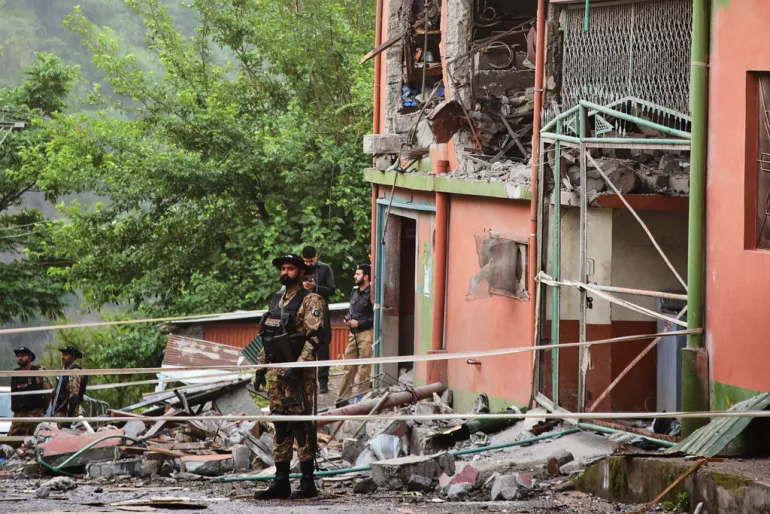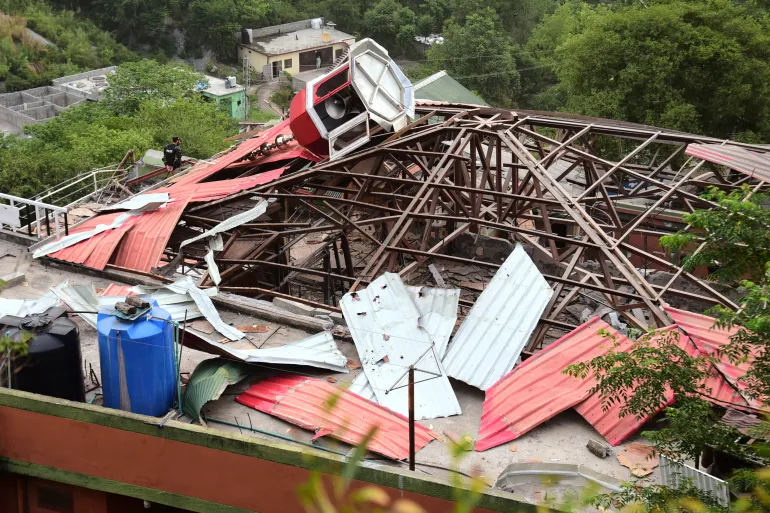07/05/2025
07/05/2025
NEW DELHI, May 7: Tensions between India and Pakistan surged to alarming levels on Tuesday following a series of cross-border airstrikes and retaliatory military actions, marking one of the most serious escalations between the two nuclear-armed neighbors in recent years.
India Launches “Operation Sindoor"
In the early hours of May 7, the Indian Armed Forces carried out a coordinated aerial assault, dubbed Operation Sindoor, targeting what it called “terror infrastructure” in Pakistan-administered Kashmir and the Pakistani city of Bahawalpur. Indian officials said the strikes were in direct response to a brutal terrorist attack in Pahalgam on April 22, which killed 26 Hindu pilgrims and injured dozens.
According to Indian military sources, 24 precision-guided missiles hit nine locations believed to house militants from Lashkar-e-Taiba and Jaish-e-Mohammed. Over 70 terrorists were reported killed, with Indian authorities describing the operation as a "measured and necessary counterterrorism step."
Pakistan Vows Retaliation
Hours after the Indian strikes, Pakistan condemned the action as a blatant violation of its sovereignty and declared it an “act of war.” Pakistani military spokespersons claimed that Indian jets were intercepted, with at least two allegedly shot down over Pakistani airspace. Islamabad further stated that retaliatory strikes targeted Indian military installations near the Line of Control, including a brigade headquarters in Rajouri.
Pakistan’s Punjab province was placed on high alert, and emergency services were activated as authorities reported 26 civilian casualties from the Indian strikes, including women and children.
Diplomatic Fallout Intensifies

Local residents examine a building damaged by an Indian missile attack near Muzaffarabad [M.D. Mughal/AP Photo]

Volunteers carry a body recovered from the rubble of a mosque building damaged by an Indian strike near Muzaffarabad [M.D. Mughal/AP Photo]

Army soldiers stand guard at a mosque building damaged by an Indian missile attack near Muzaffarabad [M.D. Mughal/AP Photo]

An army soldier stands guard on the rooftop of a mosque building damaged by an Indian missile attack near Muzaffarabad [M.D. Mughal/AP Photo]
In a sharp diplomatic escalation, both countries expelled each other’s top envoys and suspended all bilateral dialogue. India further announced the suspension of the Indus Waters Treaty, a landmark water-sharing agreement signed in 1960. Pakistan responded by revoking the Simla Agreement of 1972 and closed its airspace to Indian flights.
All cross-border trade and travel routes were also shut down as military deployments increased along the border.
Global Concerns Mount
The international community reacted with deep concern. United Nations Secretary-General António Guterres urged “maximum restraint” and called for both sides to avoid further escalation. U.S. President Donald Trump called the situation “deeply troubling” and pushed for immediate de-escalation through diplomatic channels.
Major international airlines began rerouting flights away from Pakistani airspace, highlighting the growing fears of a larger regional conflict.
Looking Ahead
With both countries engaged in direct military confrontation and traditional diplomatic frameworks suspended, analysts warn the crisis could spiral into a wider conflict unless de-escalation efforts are initiated quickly. The situation is being compared to the 2019 Pulwama-Balakot standoff, but with a more volatile mix of political, military, and civil unrest on both sides of the border.
Efforts by global powers including China, the U.S., and the EU are underway to mediate and restore communication lines between New Delhi and Islamabad.


